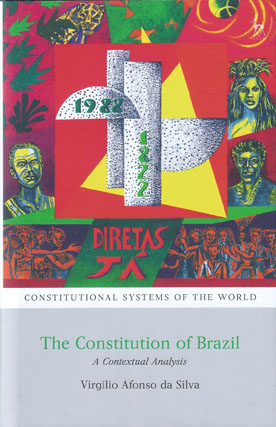
This book aims to offer an original and comprehensive analysis of Brazilian constitutional law and to show how the 1988 Constitution has been a cornerstone in Brazil's institutional stability.
To achieve this goal, the book begins with an analysis of the long road to institutional stability, by presenting a short history of Brazilian constitutionalism, with a special focus on the transition from authoritarianism to democracy which led to the promulgation of the 1988 Constitution.
The following chapters deal with the organisation of powers, beginning with a chapter dedicated to the National Congress, in which the electoral system and the law-making process are analysed; the next chapter presents the peculiarities of the executive power in Brazil: a strong president and the so-called coalition presidentialism; finally, the Brazilian Supreme Court is analysed using three concepts: independence, activism, and extreme publicity.
In relation to the distribution of powers, the following chapter aims to explain Brazilian federalism, showing how federal power-sharing in Brazil functions. The final chapters analyse the protection of rights (with special attention to the implementation of social rights) and the protection of the constitutional order under the 1988 Constitution.